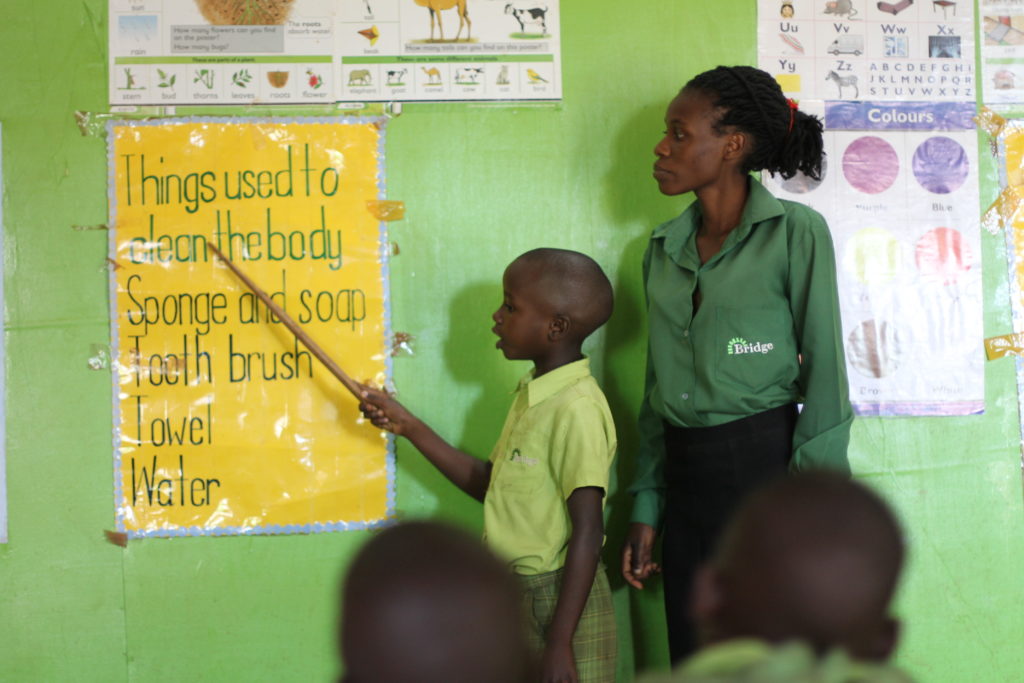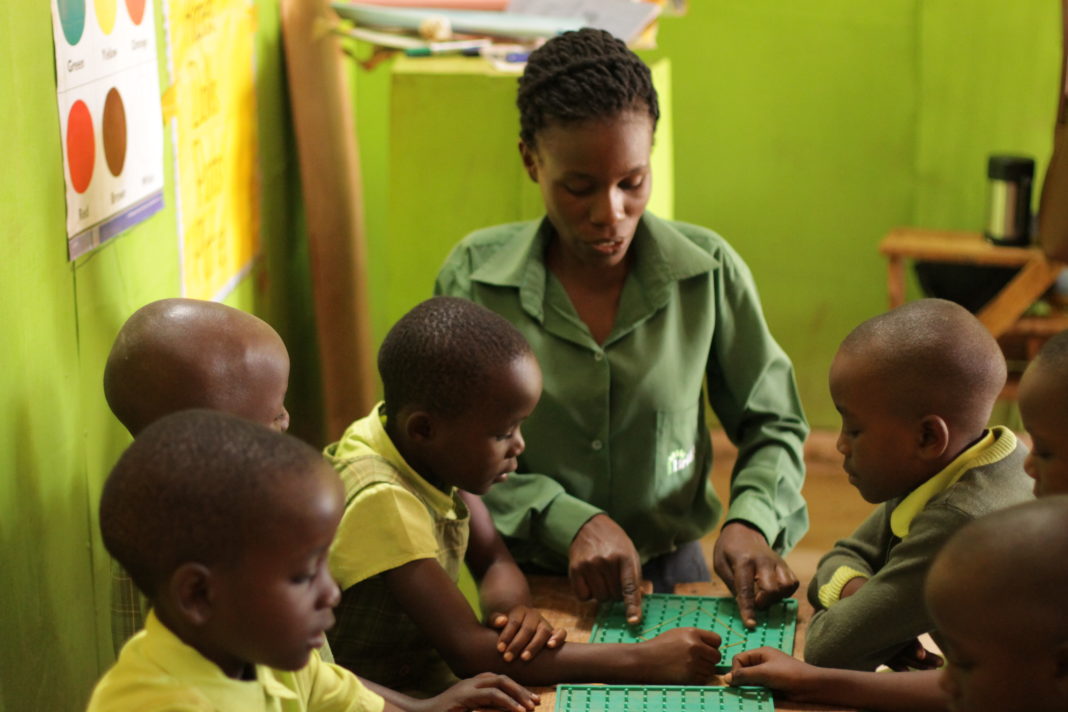The UK Department for International Development (DFID) has published a groundbreaking report in Nigeria which shows full equality of learning in Bridge schools’ classrooms, regardless of a child’s socio-economic background.
It is a strong endorsement of DFID’s commitment to innovative private sector roles in improving service and opportunity for these families. Even though the report was based on Bridge schools in Nigeria, the findings clearly have relevance in a Ugandan context where the social enterprise operates 63 schools educating thousands of children in some of the country’s poorest communities.
The DFID findings build on the preponderance of evidence demonstrating that the methods used and support provided by Bridge to teachers and pupils leads to higher learning than the alternative.
This was seen in Uganda last year when Bridge pupils sat the Primary Leaving Exam (PLE) for the first time and 100 per cent of pupils passed. In addition, over 93 per cent scored in Division 1 and 2 compared to just 56 per cent nationally. Bridge pupils went on to take up places at some of the most prestigious secondary schools in Uganda.
The DFID report makes clear that at Bridge schools, parents’ income and education was not correlated to children’s learning outcomes. This is a landmark finding – demonstrating that children from even the poorest families attain the same learning as those that are better off if the child attends Bridge.
This is what we should always find at every school – that the school itself is ensuring that each child, regardless of family background, can achieve their full potential. The DFID findings contradict decades of global education research trends that demonstrate family background matters more than the school a child attends, in relation to levels of learning. At Bridge, this is not true.
A spokesperson for DFID Nigeria said DFID “welcomed the findings of the independent study that show the need to build the regulatory capacity of government to support school management systems and processes that are necessary for improved learning outcomes in both public and private schools.” they added “this study will contribute to the growing body of evidence on the role of private sector provision of education in sub-Saharan Africa”
One of the report authors, Alina Lipcan, from Oxford Policy Management, said: “Good management matters, we find a strong correlation with better learning outcomes. We would recommend more programmes focused on better management, so that more schools and pupils can benefit.”
The report also highlights that Bridge pupils know more than their peers in other schools; the majority of children in Bridge schools are from poor families; Bridge teachers have the best relationships with their pupils and that Bridge schools are managed more effectively than other types of schools.

Bridge Uganda Country Director Morrison Rwakakamba welcomed the findings of the report saying, “There is no learning gap at Bridge schools. This is a big deal. This study validates our methods, which ensure that all teachers have high expectations for every pupil, irrespective of their families’ income, prior educational attainment, or which language they speak at home. Bridge schools are places of equal opportunity and equal learning benefits for all types of children, and especially for the poor.”
Rwakakamba also adds that the “independent DFID report shows that Bridge is helping children from poor families to learn, improving access to quality education, and enabling the best overall learning attainment in the local communities we serve. We can now say with total confidence that Bridge makes a significant and important overall contribution to education opportunities.”
The report was researched and conducted by Oxford Policy Management and the University of Sussex.The findings come as both the UK DFID Secretary of State, Penny Mourdant;
“We have tackled the dogma and culture that still exists in some parts of the aid sector, which not only sees organisations failing to put the beneficiaries first but also preventing the private sector from helping deliver those global goals”; and the CEO of the IFC Philippe Le Houérou; “We need to be imaginative and find new and more creative public-private solutions and, in many countries the governments are seeing the potential of working with the private sector.” are advocating the use of the private sector to achieve the SDG’s.




